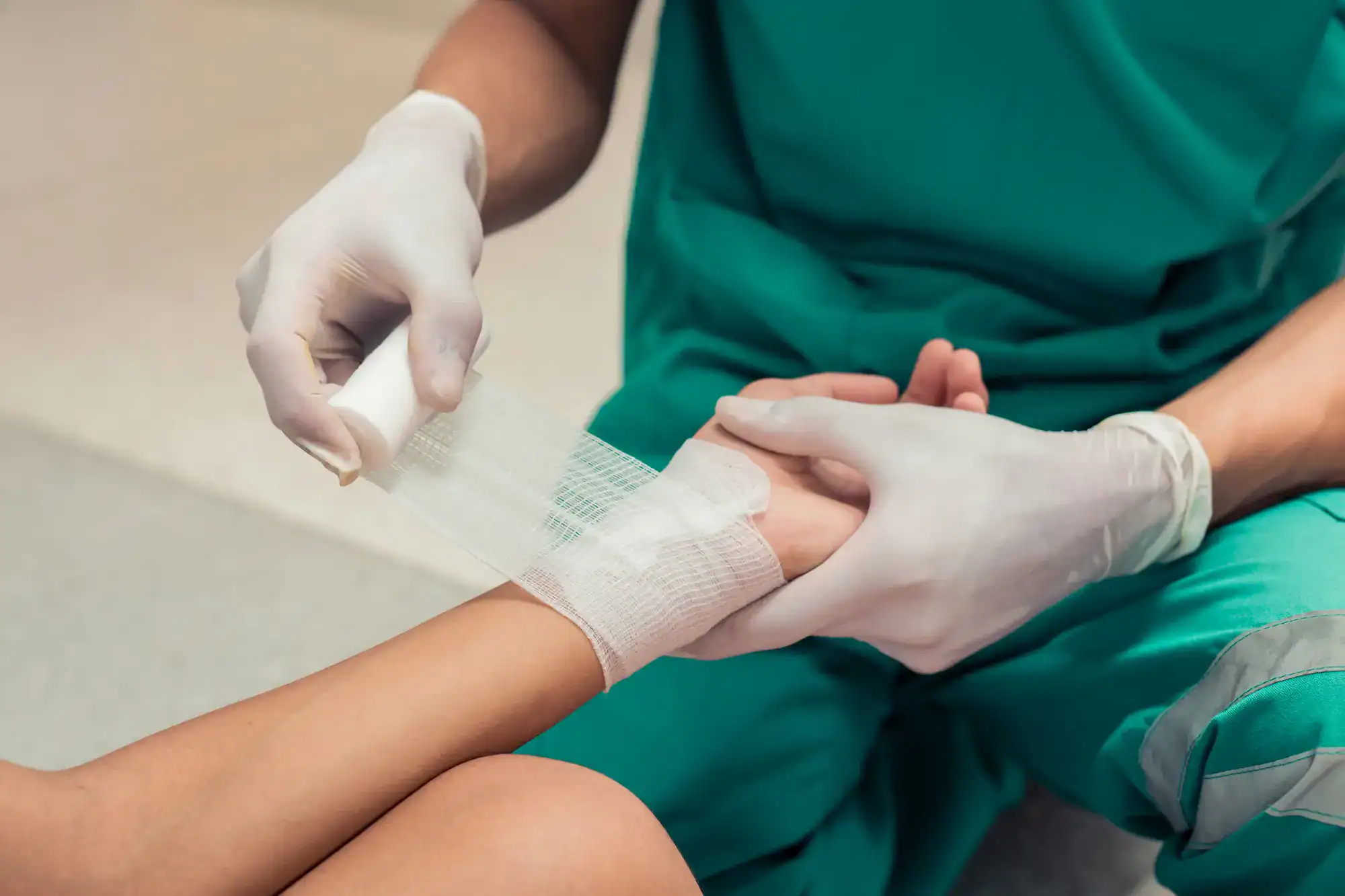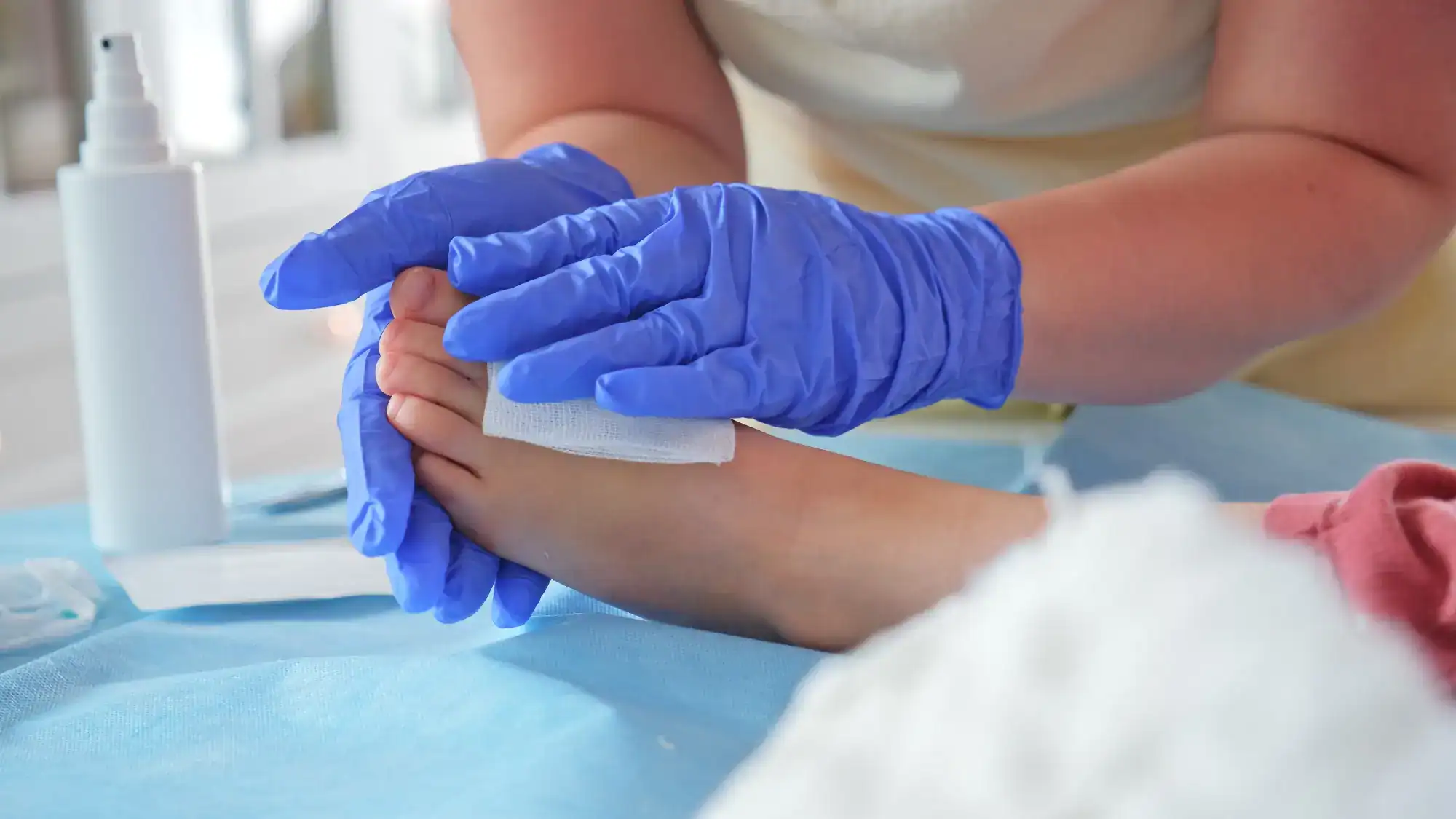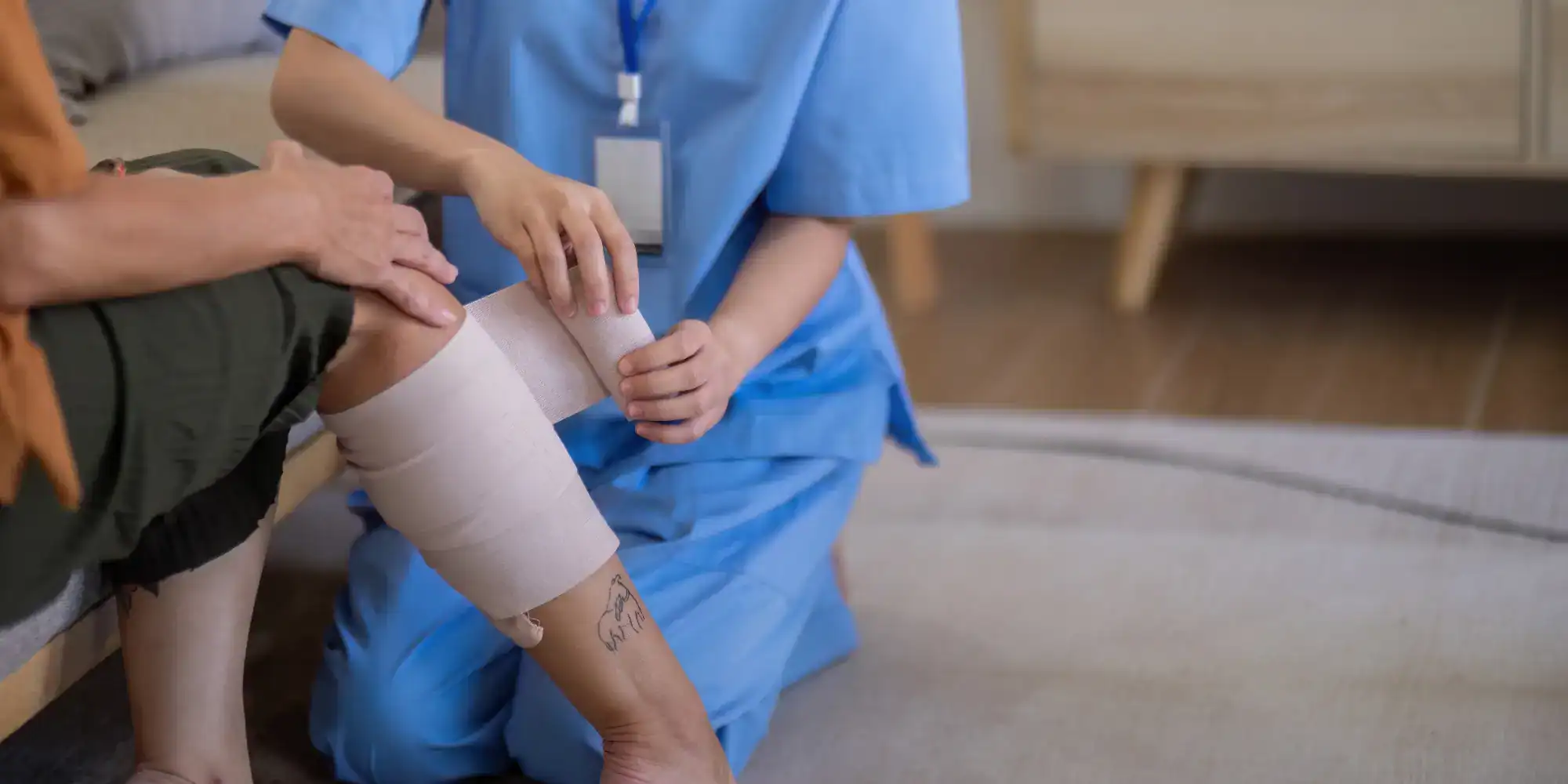Advanced wound care treatments that work when others haven’t, right here in Lake Jackson.

See What Our Customers Think

You’re dealing with a wound that should have healed weeks or months ago. Maybe it’s from diabetes, poor circulation, or an injury that just won’t close. Your regular doctor keeps saying “give it time” or prescribing another round of antibiotics.
Here’s what changes when you get the right wound care treatment. Your wound actually starts closing. The pain decreases. You stop worrying about infection every day. You can focus on your life instead of constantly managing a problem that seems to have no end.
That’s what specialized wound care does. It addresses the root cause of why your wound isn’t healing, not just the surface symptoms. You get treatments designed specifically for complex wounds, not generic approaches that work for simple cuts and scrapes.
We’ve been treating difficult wounds in Lake Jackson for years. We’re the clinic people come to when their wounds aren’t responding to standard treatment.
Our team specializes in diabetic wound care, chronic ulcers, and wounds complicated by circulation problems or other health conditions. We understand that every wound is different, and cookie-cutter approaches don’t work for complex cases.
You’re not our first patient with a stubborn wound. We’ve seen what works and what doesn’t, and we know how to get results when time is critical.

First, we do a complete assessment of your wound and your overall health. We need to understand why it’s not healing before we can fix it. This includes looking at circulation, infection status, and any underlying conditions affecting your healing.
Next, we create a treatment plan specific to your wound type and situation. This might include specialized dressings, infection control, circulation improvement, or advanced therapies like negative pressure wound therapy. We explain exactly what we’re doing and why.
Then we monitor your progress closely. Wound healing isn’t always linear, and we adjust treatment as needed. You’ll see us regularly until your wound is completely healed, not just “better.” We don’t consider the job done until you’re back to normal.

Ready to get started?
Your wound care treatment includes everything needed to get you healed. We handle debridement to remove dead tissue, advanced dressing systems that promote healing, infection management, and circulation assessment. If you have diabetes, we coordinate with your primary care doctor to optimize your blood sugar control.
We also provide patient education so you understand how to prevent future wounds. Many of our Lake Jackson patients have never learned proper foot care or wound prevention techniques. This education is crucial for diabetic patients who are at higher risk for recurring problems.
You get access to advanced treatments that most general practices don’t offer. This includes negative pressure wound therapy, bioengineered skin substitutes, and other specialized options for wounds that need more than basic care.
